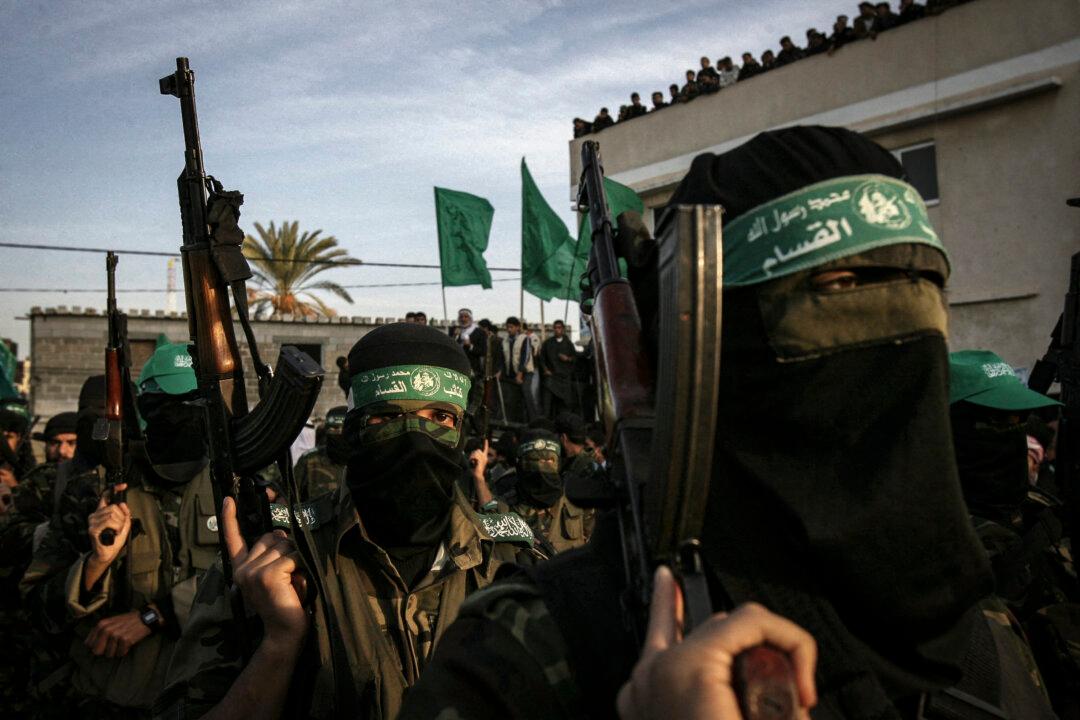President Joe Biden on Saturday reiterated his opposition to a ceasefire in the Gaza Strip, as well as his vision of a two-state solution in which Israel would co-exist with a “revitalized Palestinian Authority” governing both the West Bank and Gaza.
In an opinion piece published in The Washington Post, the president argued that a halt to the fighting between Israel and the Hamas terror group would not bring lasting peace, but would instead allow Hamas to regain strength and “perpetuate its hate.”





